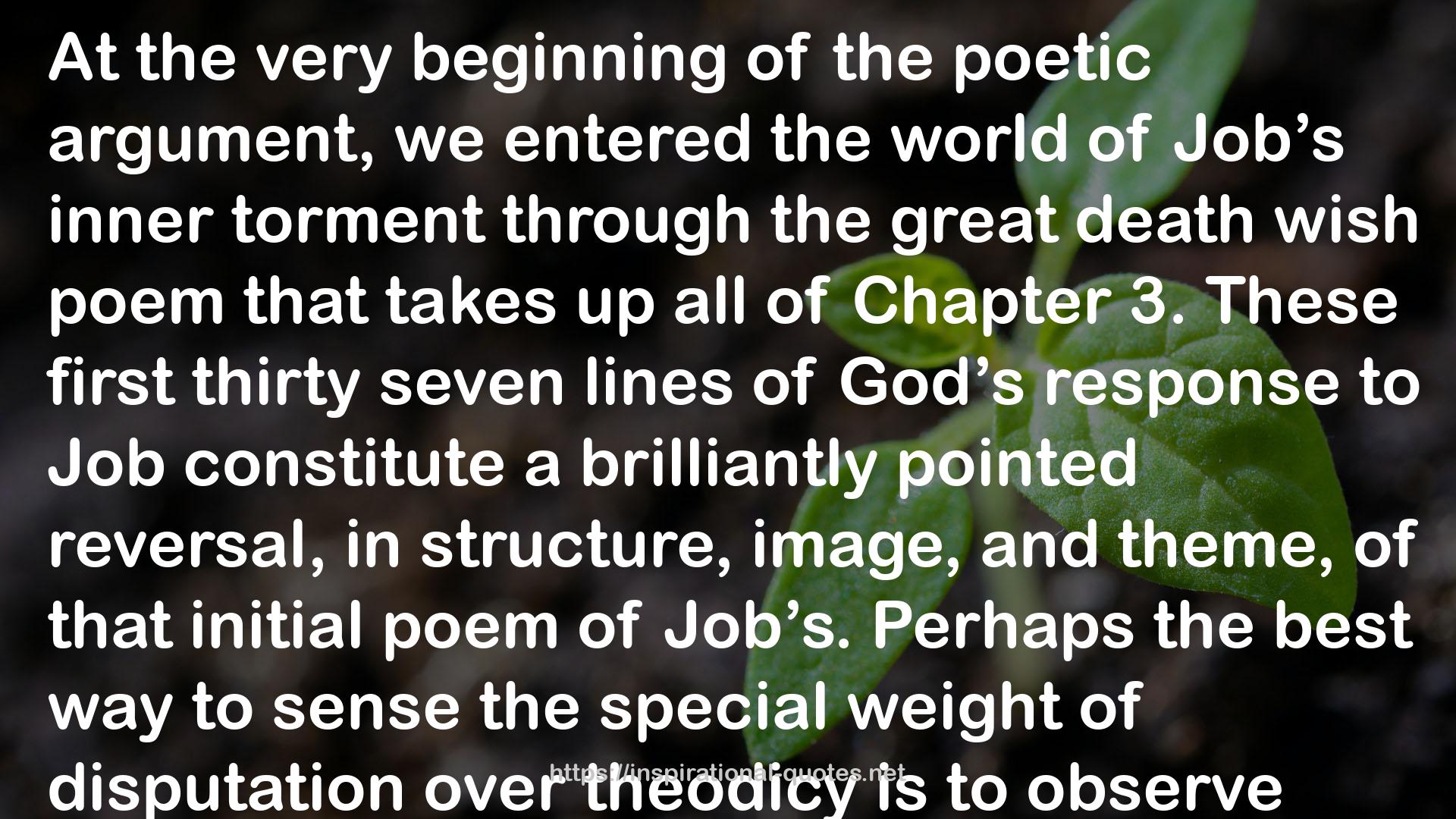" At the very beginning of the poetic argument, we entered the world of Job’s inner torment through the great death wish poem that takes up all of Chapter 3. These first thirty seven lines of God’s response to Job constitute a brilliantly pointed reversal, in structure, image, and theme, of that initial poem of Job’s. Perhaps the best way to sense the special weight of disputation over theodicy is to observe that it is cast in the form of a clash between two modes of poetry, one kind spoken by man and, however memorable, appropriate to the limitations of his creaturely condition, the other kind of verse a poet of genius could persuasively imagine God speaking….
Perhaps the finest illustration of this nice match of meaning and imagery between the two poems is the beautiful counterbalance between the most haunting of Job’s lines wishing for darkness and the most exquisite of God’s lines affirming light. Job, one recalls, tried to conjure up an eternal starless night: “Let its twilight stars go dark, / let it hope for light in vain, / and let it not see the eyelids of the dawn” (3:9). God, near the beginning of His first discourse, evokes the moment when creation was completed in an image that has become justly famous in its own right but that is also, it should be observed, a counterimage to 3:9: “When the morning stars sang together, / and all the sons of God shouted for joy” (verse 7). That is, instead of a night with no twilight stars, with no glimmer of dawn, the morning stars of creation exult. The emphasis in this line on song and shouts of joy also takes us back to the poem of Chapter 3, which began with a triumphant cry on the night of conception—a cry Job wanted to wish away—and proceeded to a prayer that no joyous exclamation come into that night (3:7). "
― Robert Alter , The Art of Biblical Poetry
